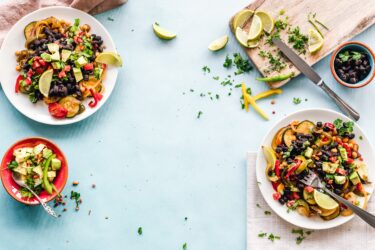RIO DE JANEIRO — The number of vegetarians in Brazil, the world’s leading exporter of beef, has doubled over a six-year period, according to research by the Brazilian Institute of Public Opinion and Statistics.
About 30 million Brazilians reported being vegetarian or vegan in 2018, a 75 per cent surge compared to 2012, according to the privately-owned marketing research company.
Another study from GlobalData shows a third of Brazilians are buying less meat, and 14 per cent are adding meat replacements to their shopping carts.
“There are many studies that show the numerous benefits of becoming vegetarian, such as prevention of chronic non-transmitting diseases, like diabetes and hypertension, and improved lipid profile, reduced risk of heart attack and stroke,” said Dr. Beatriz Beltrami, a nutritionist from Rio de Janeiro.
Beltrami said a vegetarian diet prevents diseases because fruits, legumes and vegetables, are rich in fibre, nutrients and antioxidants.
According to GlobalData, since the beginning of the COVID-19 pandemic, more than 34 per cent of Brazil’s 212.6 million people are buying less meat.
“Since I started working, I notice a big demand for vegetarian people seeking care and also for patients interested in changing their diet,” Beltrami said. “I think people are becoming more aware of their food choices and also concerned with causes such as environmental issues and their love for animals.”
“Eat real food and avoid consuming a lot of processed foods, even if they are vegetarian,” she said. “Most of the time they have many additives, preservatives and are not healthy at all.
“Always include vegetable proteins such as cereals and legumes,” she advised those trying to become vegetarian.

Awareness of environmental issues is a strong influence on Brazil’s fast-growing vegetarian population. Pasture for cattle makes up about 60 per cent of deforested areas, according to Greenpeace Brazil.
“I’ve always wanted to become vegetarian, but I only stopped eating meat once I got disgusted by it. The food started to taste and look like an animal,” said Pamela Oliveira, 21, an art education student and tattoo artist in Rio de Janeiro.
Oliveira, who’s been a vegetarian for almost two years, had a thyroid problem, but the issues caused by it have decreased since she changed her diet.
“The red meats are inflammatory, so my nodules should have got worse,” she said. “As soon as I spoke to my endocrinologist, she recommended cutting red meat, but I was already a vegetarian, so it was great.”
Isadora Moreira, 21, of Rio de Janeiro, became a vegetarian about two years ago as she started to take her major in veterinary medicine and believes all lives have the same value.
“I studied the vegetarian movement and realized how much the human race explores and has always explored other species,” she said. “I had contact with farm animals during college and studied about animal origin products, learning about what the animal goes through until it becomes a carcass and reaches our plate.”
